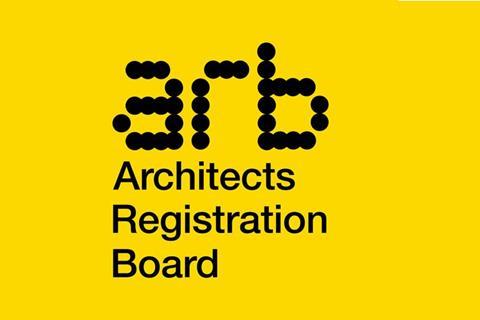Regulator also proposes requirement to write “reflective statement” each year on their development over the preceding 12 months

Architects will need to carry out compulsory CPD every year from 2024 and confirm they have undertaken it to remain registered under new proposals being drawn up by Arb.
The regulator is launching the latest round of a consultation on the emerging plans, which will also require architects to write a “reflective statement” on the development they have carried out over the preceding 12 months and their future training requirements. The regulator is proposing that architects should undertake a minimum of eight CPD activities per year.
Some architects will also be randomly selected each year to have their CPD records reviewed and will need to provide documentation on their training to Arb.
Arb’s director of standards, Simon Howard, said that the proposals had been “tailored to best meet the profession’s needs, with a focus on flexibility and relevance.” To avoid duplication of RIBA’s own existing CPD programme Arb is likely to accept completion of the RIBA CPD record as proof of compliance with the new regulations.
The Building Safety Act 2022, which came into force on 28 June, has for the first time given Arb the regulatory power to require UK architects to undertake CPD.
The 2022 Act was in part a response to the Grenfell Tower fire disaster. The ensuing enquiry exposed a perceived lack of competence around fire and life safety design among some architects and a lack of clear lines of responsibility within the overall design and construction process.
Arb undertook an initial consultation stage in 2021, asking architects how the new CPD requirement might best support the overall competence of the profession. According to the regulator, 90% of respondents to the survey were positive about the introduction of some form of compulsory CPD.
Howard believes that Arb’s late arrival to the CPD arena has enabled it to learn from other professional regulators in medicine and law, which are now “moving away from a focus on inputs and hours spent on CPD, towards outputs and knowledge gained.”
Under the proposals, architects would be able to undertake either a conventional structured CPD session through a provider or point to “incidental learning” that they may have gained through their everyday practice. The focus however would be on the reflective statement at the end of each calendar year, outlining what the individual has learnt, and identifying learning goals for the next 12 months.
Architects will normally be left to define their own CPD goals, but Arb will reserve the right to mandate certain required CPD topics in any given year. Howard points to fire and life safety and sustainability as examples of areas where compulsory learning may on occasion be necessary.
Completion of CPD activities will be a requirement before an architect can re-register in January of each year. Everyone on the register will be required to undertake CPD, including those who identify as “retired” or no longer practicing. Deferring will only be allowed in exceptional circumstances.
Arb will audit the register to ensure architects are compliant, but Howard was keen to stress that the system is not designed to be punitive.
Arb chair Alan Kershaw said: “CPD will be a condition of ongoing registration for all architects, thanks to new powers given to Arb in this year’s Building Safety Act. This new consultation takes our plans on to the next stage and I strongly encourage all architects to respond.”
Simon Allford, RIBA President, said: ”From the building safety crisis to the climate emergency – it’s crucial that architects continue to develop their knowledge and skills to respond to the challenges we face. We therefore welcome Arb’s consultation on the draft scheme for enhancing CPD.
”RIBA’s long established CPD programme and core curriculum serves to maintain and improve high quality and effective competency standards. We welcome the Arb’s proposals which seek to bolster, rather than duplicate, this, in particular by accepting CPD records submitted to RIBA.
”I urge all RIBA Members to review the Arb proposals and respond directly. Reforms to competency requirements must reflect and cater to the practical needs of the profession whilst instilling confidence in the wider sector and public.”
The current consultation will run until 3 January 2023, with a pilot of the new scheme running throughout the year. Full roll out will begin in January 2024, with all architects then required to demonstrate compliance by December 2024, in order to re-register by January 2025.
















6 Readers' comments